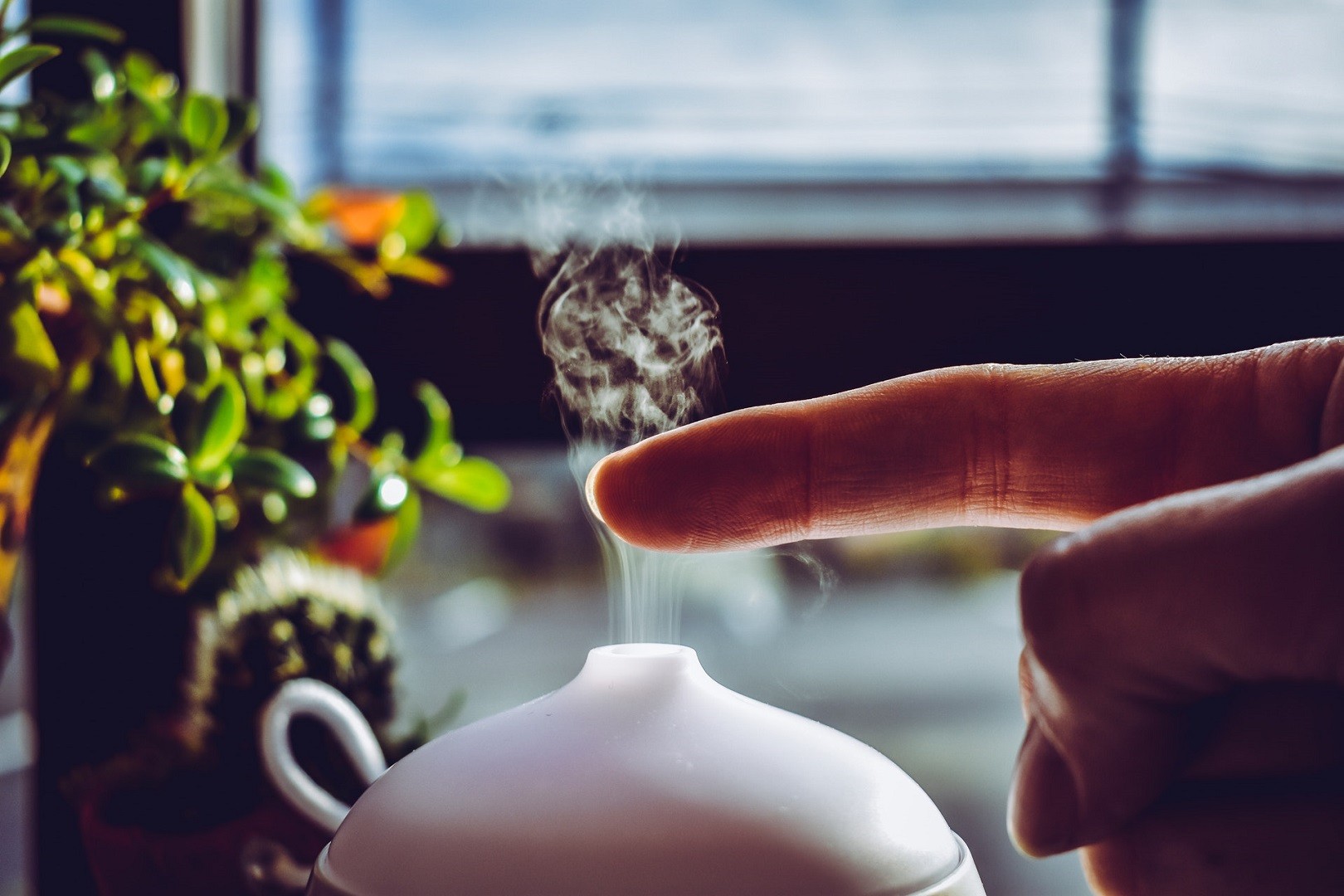
Asthma is a chronic condition characterised by breathing difficulty and wheezing. It can attack at any age, but it usually develops in early childhood. Aromatherapy is a useful adjunct to the asthma medication prescribed by your doctor as various essential oils can help you breathe more easily and painlessly.
What is Asthma?
Asthma is a respiratory disease that affects the function of the lungs due to the inflammation of the bronchial tubes. The lungs sit at the end of the respiratory system and are composed of two bronchi. These divide further into bronchioles, alveolar ducts and alveolar sacs—which is where oxygen transfer to the bloodstream takes place. It is also where mucus is produced during an asthma attack.
When you're having an asthma attack, exhaling becomes more laborious than inhaling as you experience the following:
- Tightness and pain in the chest
- Coughing
- Wheezing
- Breathlessness
- Sleeping difficulty
What Triggers an Asthma Attack?
Although genetics are believed to be the main cause of asthma, it can be triggered by a combination of other things, including environmental and emotional factors. Most people who suffer from the condition say it is almost always set off by any of the following:
- Dust
- Allergic reactions to food
- Cigarette smoke
- Dry or cold weather
- Airborne allergens such as pollen and mould
- Pet fur
- Chemicals
- Stress and Anxiety
- Strenuous activities
Common Treatments for Asthma
Conventional asthma treatments consist of drugs that dilate or prevent the constriction of the bronchi. The sufferer typically administers this via a vapour pump when the symptoms of an attack are experienced.
In addition to inhaled corticosteroids, people with asthma are prescribed beta-agonists drugs by their doctors to relax the muscles around their airways and ease their breathing. These long term-medications cannot cure asthma; they only reduce the severity of the attack.
What is Aromatherapy?
Aromatherapy is a holistic healing practice that involves the use of plant and flower extracts to stimulate or soothe the senses. The concentrated liquid obtained from medicinal plants is called essential oils, which are typically used in oil massage, diffused in the air or added to the bath as they promote physical and emotional healing effects.
Essential oils are used for a variety of conditions as it does a great job of relieving stress, aiding in digestion, improving concentration, healing skin conditions, reducing anxiety and strengthening the lungs, among many others.
Some essential oils that may help reduce inflammation and coughing caused by asthma include:
Essentials oils should not be used as the main treatment for asthma but as a complementary therapy to speed up your recovery. It's also worth noting that some of these oils should not be used during an attack as they may aggravate your symptoms.
How Can Aromatherapy Help With Asthma?
Aromatic plant oils can stimulate as well as calm. There are different ways you can use essential oils to address asthma. One of which is through inhalation.
Place a small amount of the essential oil of your choice in a diffuser, add some water and then let the oil diffuse into the air and fill every nook and cranny of your home to produce a calming ambience. An environment which is devoid of any stressors makes breathing easier and lowers the risk of an attack.
If you don't have a diffuser, you can make an essential oil inhaler. Place a cotton wick in a plastic inhaler, add 15 drops of essential oil, cover the bottom of the inhaler with its corresponding cap and then slide the cover over the inhaler. When you feel the need to calm your nerves, slide the cover open, draw the inhaler towards your nose and breathe in the vapour of the therapeutic oil.
You can also apply essential oils topically. However, before doing so, see to it that you dilute them in a carrier oil. Massaging your chest and back with an essential oil blend relaxes the muscles around the bronchial tubes and makes breathing easier. Rosemary and eucalyptus, for instance, make an excellent combination as these herbs contain analgesic and anti-inflammatory properties. Lavender, on the other hand, is noted for its therapeutic properties, as are chamomile and peppermint.
Aromatherapy treatments for asthma are best enjoyed under the guidance of a trained aromatherapist. You may want to check the Natural Therapy Pages for a qualified practitioner within your area. Or try out online aromatherapy consultation using Zoom.
Also, you can find out about other effective natural asthma treatments.
|
Do you have a natural health & wellness business? |









